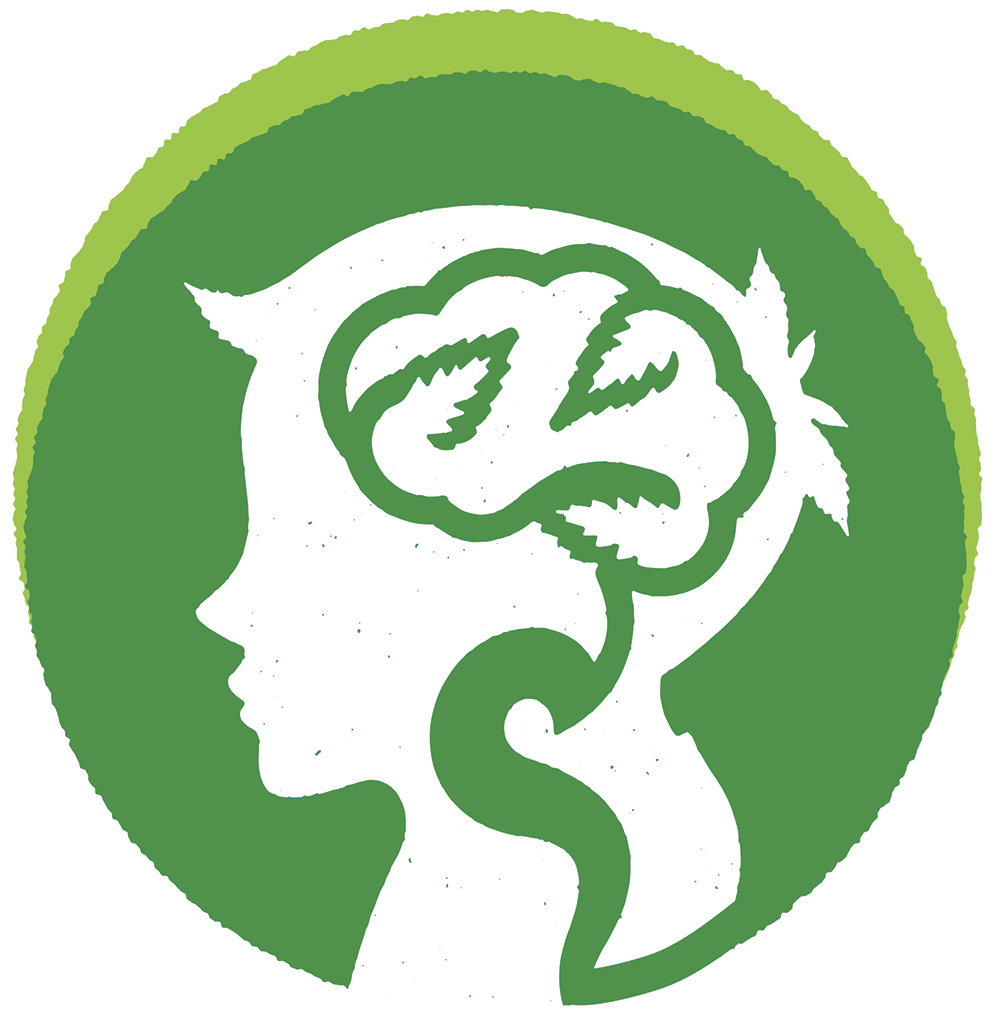Let’s face it: Marijuana use among teenagers is not a rarity in Lane County. According to Lane County Public Health, 18 percent of Lane County high school juniors surveyed in 2014 had used pot in the past 30 days.
When teenagers toke up, THC (tetrahydrocannabinol, the chemical largely responsible for feeling high) over-stimulates receptors in their brains and spikes levels of the feel-good neurotransmitter dopamine. It’s hard to say definitively, but most experts agree that repeatedly engaging in this process is not a particularly healthy thing to do to a young, developing brain. However, there’s some disagreement on whether we’ll see an increase in teen pot use once legalization hits.
“Marijuana has become a very prevalent drug in our youngsters, and my concern is that we don’t know the long-term effects in teenagers,” says Dr. Ronald Schwerzler, a board-certified addictionologist with Serenity Lane — an addiction treatment center — in Eugene. “We do not think the brain is developed until age 25, and so the brain is not ready for mood-altering drugs.”
Schwerzler is a member of the advisory committee for CLEAR Alliance, an anti-marijuana nonprofit in Oregon. He says studies have shown that, just like anything that isn’t good for the brain (head injuries, sugar, fat), marijuana can change brain function when it’s used before the brain is fully developed.
“Adolescents need to learn how to delay gratification,” he says. “Happiness is not an immediate response to a drug or pleasure. It’s something you have to learn. That can be really hard for people on a mood-altering substance.”
A 2013 study published in the journal Hippocampus found distinct morphological differences in the hippocampus, or memory center of the brain, of people who used marijuana during their developmental years. The National Institutes for Health (NIH) cites a 2012 study, which found that people who used marijuana in adolescence “never achieved their predicted trajectory in IQ, even with sustained abstinence in adulthood.”
While more research is necessary to determine whether kids who use pot have lower IQs to begin with or their low IQs are being caused by pot, medical institutions such as NIH say marijuana use is risky for teen brains in the long term.
Teen use is already prevalent, but with legalization, will we see an increase in teenagers using marijuana? Schwerzler says he’s worried we will.
When kids see adults recreationally smoking marijuana, he says, they register it as an acceptable activity. “If you’re growing pot in your bedroom and you have kids running around, they’re going to think it’s OK, so I have some concerns about having recreational marijuana in the home with children present.”
Not so fast, says Peter Zuckerman, a spokesman for New Approach Oregon, the group behind the measure to legalize marijuana in Oregon. According to a 2014 article in The Washington Post, teen use of marijuana went down in Colorado and Washington state after legalization, and a 2015 study published in Lancet Psychiatry found no increase in adolescent marijuana use in states that legalized medical marijuana.
“Marijuana use by people under 21 is just not healthy,” Zuckerman says. “The researchers are not making that up. But we believe a better approach to stopping marijuana use in children is to regulate it.”
The NIH’s 2014 survey of drug use showed that a growing number of teenagers don’t perceive marijuana as harmful. With better education, that perception could change.
Zuckerman says tobacco serves as an appropriate analogy, and “education, taxation and regulation has been really effective at curbing teen use [of tobacco].”
The attempted approach with marijuana — making it illegal and spreading misinformation — has not worked, he adds. “I think the model we’re working on will be much more effective.”
